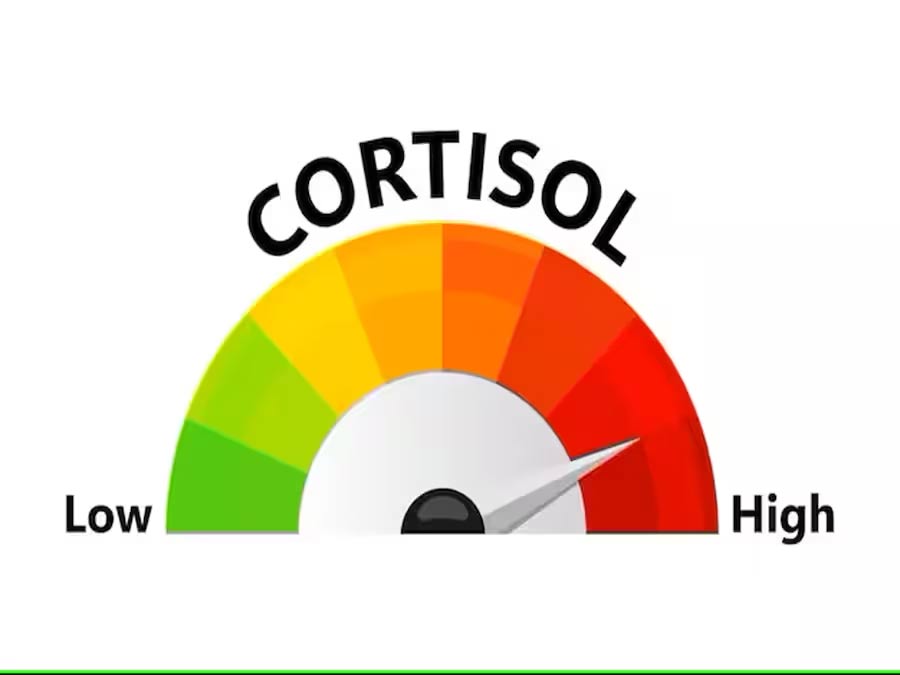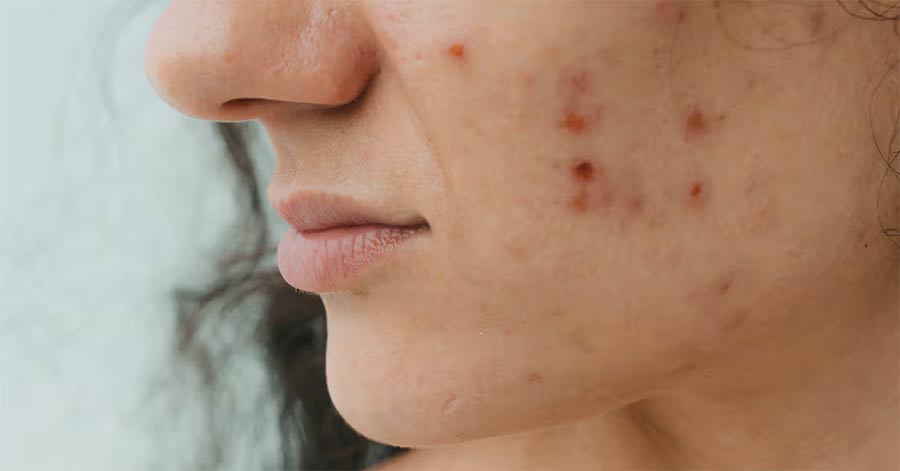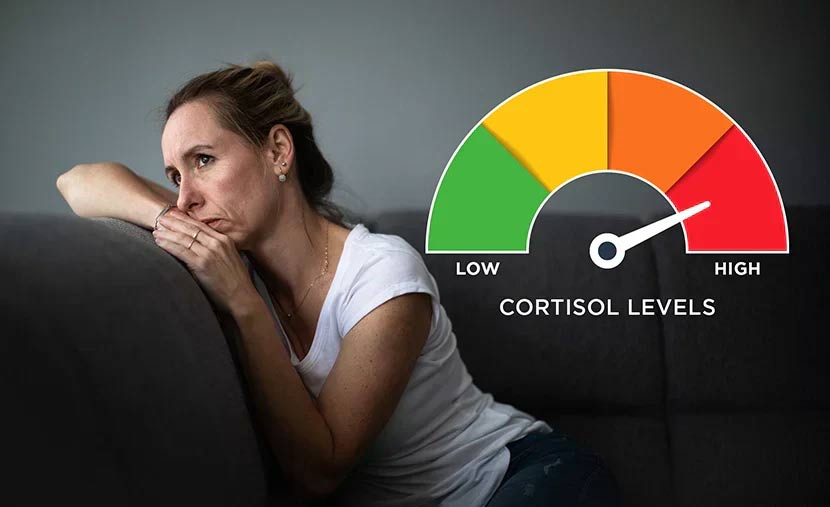Warning signs of high cortisol and how to fix it
Stress and other conditions can increase cortisol levels. High cortisol levels can cause symptoms such as weight gain, acne, and fatigue. Doctors may refer to high cortisol levels as Cushing's syndrome or hypercortisolism.

Everyone has high levels of cortisol from time to time, and levels change throughout the day. This is part of the body's natural response to threats of harm or danger.
However, if your body consistently produces too much cortisol, it's often a sign of an underlying health problem. Here's how to recognize the symptoms of high cortisol levels, potential causes, and when to call your doctor .
Symptoms of high cortisol
High cortisol can cause a variety of symptoms. Symptoms can vary depending on the cause of the increased cortisol levels or how high the cortisol levels are.
Common signs and symptoms of too much cortisol include:
- Weight gain, mainly in the face and abdomen
- Acne
- Skin thinning
- Easy bruising
- Red face
- Slow wound healing
- Muscle weakness
- Severe fatigue
- irritable
- Difficulty concentrating
- High blood pressure
- Headache
Causes of high cortisol
When cortisol levels are low, the hypothalamus releases a reliable source of corticotropin-releasing hormone (CRH), which stimulates the anterior pituitary gland to release adrenocorticotropic hormone (ACTH). ACTH then causes the adrenal glands to produce and release more cortisol.
There are several different reasons why the adrenal glands may release too much cortisol.
Stress
Stress is a combination of signals in your body from both hormones and nerves. These signals cause your adrenal glands to release hormones, including adrenaline and cortisol.
As a result, your heart rate and energy increase as part of the fight-or-flight response. This is your body's way of preparing for potentially dangerous or harmful situations.
Cortisol also helps to limit any functions that are not needed in a fight-or-flight situation. Once the threat passes, your hormones return to normal levels and so do your bodily functions.
But when you're constantly stressed, this response doesn't always go away. Long-term exposure to cortisol and other stress hormones can negatively impact most of your body's processes. This increases your risk of health problems like heart attack and stroke.
Pituitary problems
The pituitary gland is located at the base of the brain. People sometimes call it the 'master gland' because it monitors and helps control many of the body's functions by releasing hormones.
Pituitary gland problems, such as a cancerous pituitary tumor, can cause the gland to produce too little or too much hormones, including ACTH, which then triggers the adrenal glands to release more cortisol.

Adrenal tumor
Your adrenal glands sit above each kidney. Adrenal tumors can be benign (noncancerous) or malignant (cancerous) and can vary in size. Both types can produce high levels of hormones, including cortisol.
Additionally, if the tumor is large enough to put pressure on nearby organs, you may experience pain or a feeling of fullness in your abdomen.
Adrenal tumors are usually benign and are found in about 1 in 10 people who have an adrenal scan. Adrenal cancer is much rarer.
Side effects of the drug
Certain medications can cause increased cortisol levels. Corticosteroid medications can cause high cortisol levels if you take high doses or for a long time.
Finding the right dose and taking corticosteroids as prescribed can help reduce your risk of developing high cortisol levels.
You should never stop taking steroids without gradually tapering your dose or talking to your doctor first. Stopping them suddenly can cause adrenal insufficiency, in which the adrenal glands stop working.

When should I see a doctor?
If you think you may have high cortisol, you should contact your doctor for a blood test. High cortisol levels cause vague symptoms, meaning that a number of medical conditions could be causing them.
If you are experiencing the above symptoms and they persist, your doctor may recommend the following tests:
- Cortisol blood and urine tests: These tests measure the levels of cortisol in your blood and urine. Blood tests use a blood sample taken from a vein in your body.
- A cortisol urine test is a 24-hour nonurinary cortisol excretion test, which involves collecting urine over a 24-hour period. Lab technicians can then analyze the blood and urine samples to determine cortisol levels.
- Saliva cortisol test : A saliva sample taken at night can show whether your cortisol levels are high. Cortisol levels rise and fall throughout the day and drop significantly at night in people who do not have Cushing's syndrome. High cortisol levels at night suggest that you may have Cushing's syndrome.
- Imaging tests: Imaging tests such as MRI may be helpful to take pictures of your pituitary and adrenal glands to check for tumors or other abnormalities.
High cortisol levels can increase your risk of health conditions such as:
- Cardiovascular disease
- Osteoporosis
- Diabetes
If your doctor finds you have high cortisol levels, they can work with you to determine the underlying cause and advise on appropriate treatments.
You should read it
- Synthetic enzymes can be catalysts for artificial life
- 13 words and 10 sales secrets that certain sales people must know
- How to use conditional formatting in Microsoft Excel 2016
- Microsoft can control the operating system and remove software remotely
- Guide to advance Viettel VND 100,000 with Airtime Credit service
- 7 bluetooth headsets have the best battery life
 Common Misconceptions About Credit Scores
Common Misconceptions About Credit Scores Do this 1 hour a week, cancer also progresses slowly
Do this 1 hour a week, cancer also progresses slowly What is MBTI? 16 MBTI personalities
What is MBTI? 16 MBTI personalities When should you embed a video and when should you link to a video in PowerPoint?
When should you embed a video and when should you link to a video in PowerPoint? How to reduce water pollution
How to reduce water pollution Meaningful short stories, the more you read, the more you think, the more profound it becomes.
Meaningful short stories, the more you read, the more you think, the more profound it becomes.